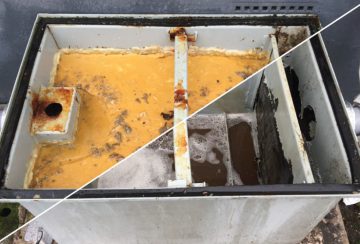Grease Trap For Restaurants in Sydney

Grease Trap For Restaurants in Sydney
- September 29, 2022
- Posted By Douglas Wilson
Without a grease trap, restaurants in Sydney can suffer plumbing problems. Grease can harden and clog pipes, causing expensive repairs. It can also be dangerous, as it can overflow wastewater treatment plants and pollute local water supplies. A grease trap will help your restaurant comply with federal, state, and local grease regulations.
A grease trap Sydney works by separating water from greasy materials. Various systems are available, based on their function. Different systems have different initial costs, which makes it important to know the differences before deciding which one is right for your business. Purchasing the right grease trap is an important investment that will save you time, money, and headaches.
In order to keep your property clean, you should regularly empty your grease trap. Its contents should be discarded in a sanitary manner, so that your restaurant can maintain the hygiene of your customers. You should also consider the capacity of your grease trap. Generally, a grease trap should hold a minimum of 1,000 litres of grease. However, fast-food outlets often need larger traps.
A grease trap is an essential part of a business’s plumbing system. It prevents greasy waste from clogging drains. These traps are commonly used in restaurants, pubs, and clubs. They slow down the flow of wastewater and separate solids and grease from the wastewater. As a result, cleaner water is allowed to flow.
When it comes to liquid waste management Sydney has to offer, you have a variety of options. You can have a comprehensive range of services arranged for you, including the removal, transportation, and disposal of liquid waste streams. Regardless of the type of liquid waste you produce, it’s crucial to follow EPA guidelines to ensure it is disposed of properly.
Wastes that are considered hazardous are those that pose a risk to human health and the environment. Hazardous wastes include waste derived from the manufacture of certain chemicals, batteries, medical waste, and other materials that can be harmful to the environment. There are several different types of hazardous wastes, and different types can be hazardous in many different situations. In NSW, regulatory requirements take into consideration the hazard characteristics of these wastes to ensure they are properly managed.
Most businesses need to dispose of liquid waste in some way. These can include wastewater, cooking oil, and used oil, as well as hazardous industrial wastes. These wastes cannot be disposed of in the general waste stream. Instead, they must be properly managed and disposed of. Depending on the liquid waste, it can be stored in drums or intermediate bulk containers, or packaged in approved small containers.
Waste disposal services can handle liquid waste in a number of different ways. Some types of liquid waste management include dewatering, root-zone treatment, composting, and dewatering. In Sydney, professional rubbish management companies can help you determine the best solution for your needs.